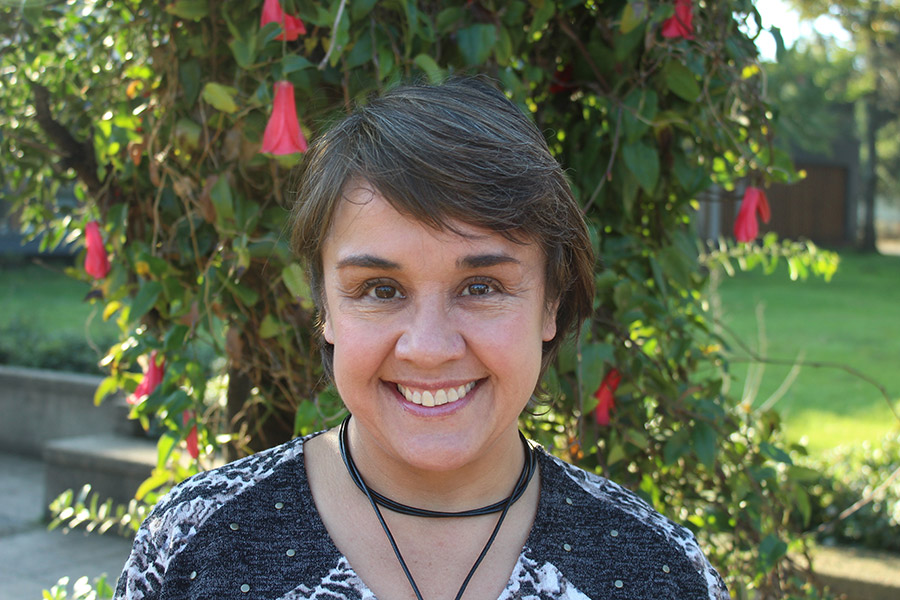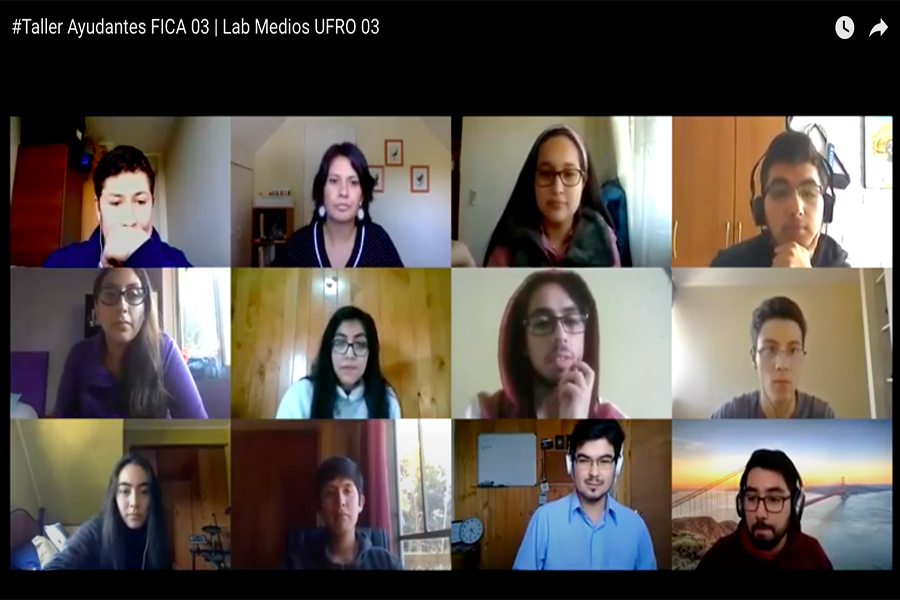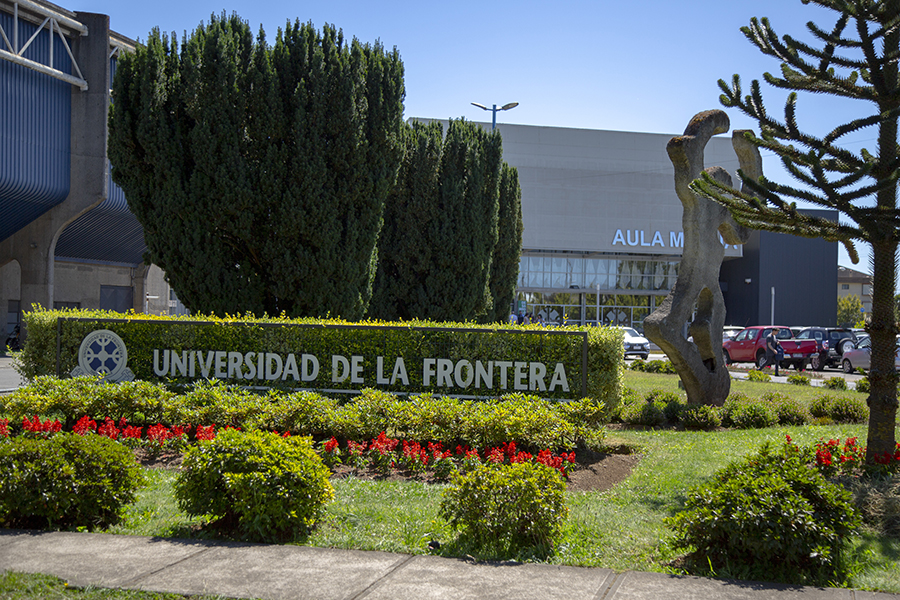|
Online education and quality. |
“We are facing a situation at the moment, which is absolutely new and which does not only affect the population’s physical health, but also our way of interacting with other people, the way we work, communicate, enjoy our environment and our education. This situation has made us assume our vulnerability and requires greater flexibility, adaptivity and humility from us. It invites us to stop over-demanding, to reflect, to look at ourselves and to give value to what we often don’t even see. This is where teachers become key in order to support, guide and inspire the students to make their lives more complete, healthier, happier and more meaningful. They can become guides who give great strength to the students through education and their online classes. The fast technological evolution, students who are digital natives, the implementation of shared classrooms (where teachers from other institutions or countries can participate as guests), the possibility of visiting museums and libraries around the world for free, plus the efforts of the teachers and educators themselves to learn and be trained, are elements that we must value today, in addition to a teaching-learning process that involves emotions, bonding, trust, good faith and especially hope. Although there are some cases in which they don’t have access to the internet or computers or in which there is no certainty at all, we have to keep our hopes up. So, what should we concentrate on? On maintaining the personal link between teacher and student; on innovating and diversifying our way of teaching; on always putting the student at the centre of the knowledge creation process; and on the development of skills like self-management, learning to learn, self-confidence and hope. This is an opportunity to strengthen values and to make the students recognize their knowledge, previous experiences and personal resources without forgetting their personal backgrounds. In addition to that, we have the opportunity to cultivate and practice social skills that are essential in life, such as empathy, solidarity and mutual respect. We have the chance to apply varied, motivating and highly effective resources, which invite the students to be creative, to adapt and to learn permanently. Feedback for both sides should be a constant variable, so that we all learn together. The focus is not the grade, it never should have been. The focus should be on learning and preparing for life; a good life, with purpose and meaning. What we are learning about online education at the moment will not expire when the pandemic ends. This online learning modality will last and complement face-to-face learning. We are facing an opportunity in education and we must be aware of that!” Helga Gudenschwager Grüebler
|
|
The Media Laboratory of the university Universidad de La Frontera together with the Office for Continuous Education of the Faculty of Engineering and Science trained the academic staff, students and assistants for undergraduate online classes with the clear aim of expanding their knowledge about e-classes, e-learning and the new functions of the Virtual Campus platform. |
The current health emergency challenges our society in many ways, for example when it comes to the continuity of education processes. In response to that, the Universidad de La Frontera (UFRO) decided to carry out the first semester of 2020 online, a reality that is completely new for most teachers and students. With the aim of providing optimal conditions for this online semester, the Faculty of Engineering and Science (FICA) implemented through its Media Laboratory and with the help of the Office for Continuous Education a series of online courses and workshops on e-learning and teaching. “We are convinced that distance education is a more and more important way of learning in our society and there is no doubt, that we will make great progress in this field during and after the pandemic. We also know that the situation we are dealing with is absolutely exceptional and that it is a big challenge to prepare and complete courses that normally would take months in only weeks. That can cause a lot of stress, in addition to other situations we have to face,” Dr. Juan Pablo Cárdenas, the director of the Media Laboratory, pointed out. Against this background, he adds that “the team of the Media Laboratory and the team for Continuous Education of our faculty have been working hard to develop a basic and compact model in order to simplify the start of this online semester as much as possible. We applied all our experience in distance education and we are constantly working in order to provide the best support possible for this difficult task”. The Media Laboratory carried out 14 workshops for teachers, 10 for students and 3 workshops for class assistants, in addition to a “Virtual Campus Assistance” course for academic staff and another one for the students, in order to make them familiar with the different educational resources and tools the platform offers. “The training provided by the Media Laboratory regarding the use of the Virtual Campus was very important for organizing and standardizing our online teaching during this first semester. It is a great challenge for everyone to teach under the condition of virtuality in the context of the health crisis we all confront. We have to make sure that these classes are of quality, so the students can learn and feel confident about them. Having that in mind, one way to improve is to continuously provide trainings for everyone who’s involved. On the other hand, we must be open to the suggestions and opinions of the students, in order to make our classes more efficient,” Dr. Erick Scheuermann, the Academic Secretary of FICA and an academic staff member of the Chemical Engineering Department, said. Dr. Magaly Sandoval, an academic staff member of the Department of Industrial and Systems Engineering, pointed out: “It was important for me to have participated in this training, since I chose to change to the FICA template for the subjects I teach. Thanks to these workshops I learnt how to use it in a didactic way and in much less time. The workshops on Zoom were also very clear, because they shared many tips, which I am currently putting into practice during my classes.” She adds that “the space for “Virtual Campus Assistance” is really great, because you can find everything you need to prepare your online classes in accordance with the guidelines of the Vice-rectorate for Undergraduate Affairs, including links to the recordings of the workshops, in case you need to view them again. And, most importantly, the support doesn't end there. I can send them my questions whenever I need to and they always respond very quickly and resolve the problems. For the same reason, I just want to thank and congratulate the professionals of the FICA Media Laboratory for their Virtual Teaching Training workshops to which they invited us. It is a privilege to have such dedicated professionals at UFRO.” The feedback received from the students who participated in these workshops was also very positive. Jhandary Muñoz, who studies Civil Engineering, says that “the implementation of the workshop for assistants was a very good idea, considering the situation in which we find ourselves and that online classes are something new for all of us, both teachers and students. It helped us to clearly understand what the assistant's tasks will be during this semester and how we can approach this new way of teaching and learning in the best way possible”. In addition, this student, who is currently an assistant in the subjects of Asphalt Paving Technology and Transport Engineering, adds: “Personally, I think that the university has put a lot of effort into the preparations for this online semester, trying to convert it into a good experience for everyone. And I think that if we all put in a little effort, we can learn as much as our in-person classes.” In total, a number of 150 members of the academic staff, 288 assistants, 92 teachers and 510 students (376 freshmen and 134 students of higher courses) participated in the courses and workshops. It is also important to mention that the Media Laboratory supported the creation and implementation of a FICA template that considers 2 important components: 1) structure, which allows the development of an instructional design, providing guidelines and guides to organize the training development process and 2) layout, with a modern approach, easy to navigate and compatible with mobile devices. This template is being used in 303 undergraduate courses taught during this semester, which is completely online. The Media Laboratory of the Faculty of Engineering and Science of the Universidad de La Frontera is dedicated to supporting innovations in engineering education through the promotion of multimedia materials created locally by academic and specialized staff in order to facilitate the work, visualization design and virtualization of content. In the medium term, this unit seeks to become a center of advanced technological support for educational purposes in different fields of engineering, online education and the integration of educational videos in 2D and 3D. Written by: Daphne Bormann
|
|
|
Dear University Community, This means that we will keep working remotely and that only those who have to fulfill tasks that are absolutely critical for the university will be able to access our Campus, while complying with the safety measures established by the health authorities (mandatory use of face masks in public spaces, one-meter distance between people, etc.). In addition, and in accordance with our institutional strategy regarding this health crisis, in which the well-being of the people has always been our priority, we have established a protocol with the aim of elaborating a Return to Work Plan. The idea is to develop different stages in order to guarantee a safe and progressive return. Therefore, we put together a Committee with different members of our university community, who are directly linked to those processes and who represent the different units. We will inform you about the advances in due course. The classes for our undergraduate and graduate students will take place online during the first semester of 2020. Kind regards, Temuco, May 8, 2020
|
|
More than 3 thousand students benefited from the program which had the objective of providing support to students who don’t have access to the internet. Thanks to the benefit, they will be able to join the online classes and to continue with their undergraduate studies under the current circumstances. |
In the context of the global Covid-19 pandemic, the Universidad de La Frontera (UFRO) decided in March to suspend all on-site activities and to teach the students online during the first semester of 2020. But not all of the students do have access to the internet. This is why the University decided to support the students in need by providing them with a scholarship, in order to give them the opportunity to join the online semester. The benefit consists of a monthly scholarship of 15,000 CLP (ca. 18 USD) each, so that the students can obtain access to the internet and the virtual platforms on which the online classes take place. It helps the students to purchase or improve their data plan, what allows them to participate in this new teaching model that will last the whole first semester of 2020. Unlike other universities, the Universidad de La Frontera believes that a direct financial aid is the best option, considering that part of the student body lives in places with poor connectivity due to the context of our region. Another service that UFRO has implemented with the help of the Student Development Office is the loan of laptops. Because of the limited number of equipment, the different UFRO Faculties also gave their support in this process by making equipment available to the students in need. Alex Seguel, the director of the Office for Student Development (DDE), commented that they have made a joint effort with the Faculties to assign computer equipment, based on the information the DDE had. “We are committed to responding in the best possible way to a requirement that is complex, both in terms of logistics and access in the case of rural areas. But we are working on it. We talked with the Faculties to inform them about our selection process, which allows them to have a record of the allocation of equipment and also for them to better distribute their own resources. Our goal is to help the University to meet all requirements,” he explained. SCHOLARSHIP ALLOCATION Verónica Pincheira is the head of the UFRO Office for Student Services and pointed out that the scholarship was allocated based on socioeconomic and university admission conditions and the enrollment history. The data was cross-checked against the University's enrolment system (socio-economic indicators, type of admission, educational establishment they came from and whether they live in urban or rural areas). Ten different variables were considered - six are based on socioeconomic factors and the others are based on the student’s enrollment and geographic location,” Verónica Pincheira explained. DELIVERY OF THE SCHOLARSHIP The scholarship will be delivered via wire transfer to the bank account indicated by the students in their application form. The beneficiaries of the first call for the Internet Connectivity Scholarship have already been paid and at the moment the University is working on the delivery of the scholarship for beneficiaries of the second call, as well as on handing out laptops to the students selected for this benefit. Until now, the UFRO Office for Student Development and the different Faculties handed out 133 laptops to students living in the urban area and 250 laptops to students living in rural areas. Written by: UFRO Communications Office
|
|
The fifth season of this initiative, which during this first semester of 2020 will be called Online Science Café, will begin on Thursday, May 7, at 7 pm. (Chilean local time). |
It started five years ago as a space for the dissemination of science and scientific knowledge. Today, it has become a consolidated activity of the Universidad de La Frontera (UFRO), which will start its fifth season providing topics of interest to the community. Given the health emergency that affects the country and the world because of COVID-19, this season will take place online. “People are highly interested in scientific issues at the moment, probably because they are looking forward to a solution to the global health crisis. In this respect, the interaction between science, technology, the society and the environment is key to move forward, and this is precisely one of the focuses of the Science Café of UFRO,” said Dr. Alex Seguel, the Director of the Student Development Office at UFRO and one of the organizers of this initiative. Over the years, 27 sessions of the Science Café have taken place, where 37 speakers have presented topics such as natural hazards, cancer treatment, Araucaria preservation, functional foods, depression in adolescents, male infertility, medical cannabis, etc. Besides, we were able to prove that young people are interested in science, with an audience of more than 4000 people in total. FIRST SESSION OF SCIENCE CAFÉ SEASON 2020 The name of the first session of the Science Café season in 2020 is “COVID-19: Cultural Changes in Chile”, with the speaker Dr. Catterina Ferreccio R., a physician, specialist in Public Health, MSP from the University of Chile and MSP in Epidemiology from Johns Hopkins University, a professor and the director of the Master’s Program in Epidemiology at the Department of Public Health of the Faculty of Medicine of the Pontifical Catholic University of Chile (UC), and a member of the COVID-19 Advisory Council of the Chilean Ministry of Health. The audience will be able to learn more about COVID-19 with the help of this expert during this session. “Although the recommendation is to stay at home these days, we feel the strong commitment to continue with this space for science in order to help the community in an interactive online edition that allows us to talk about scientific advances, and where the audience has the possibility to express their opinions and to ask questions. We invite you to join us and to participate from your homes via the digital platforms of Ufrovisión,” Dr. Seguel added. LIVE BROADCAST It is worth mentioning that this year's season will also be broadcasted by Ufrovisión, the Media Network of the Universidad de La Frontera, which will play a fundamental role in these online transmissions, which will allow to reach a large audience with interesting topics. We invite you to join our Science Café with a session about COVID-19 (in Spanish) on Thursday, May 7, at 7 p.m. (Chilean local time):
Written by: Carmen Hernández
UFRO Communications Office |










